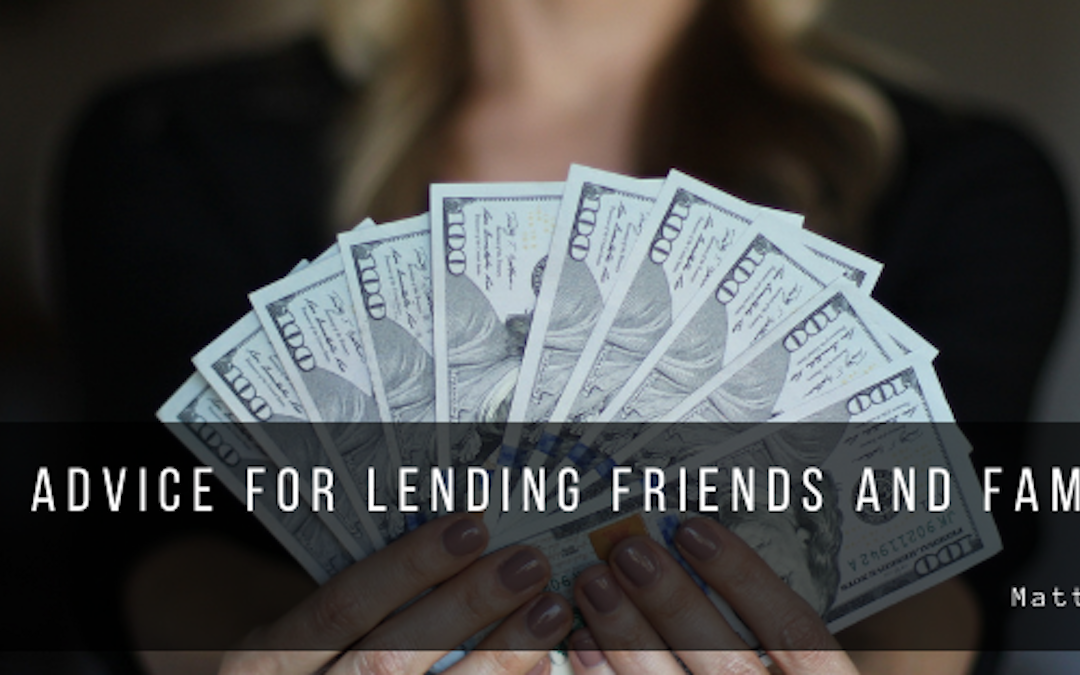Over half of all Americans have loaned money to relatives or friends on at least one occasion. Approximately 35 percent say that they never got the money back. A significant number of American households have no emergency savings, so you’ll likely know several people that need help from time to time.
Money is a sensitive and embarrassing topic for most people. Financial gurus advise people not to borrow money from family and friends for various reasons. Even stable relationships can suffer lasting consequences when loans go bad. The pandemic has made access to credit much harder to get, given how risk-averse lenders have become in the current economic state, which increases the likelihood of loan requests from people you know. If someone does turn to you for financial assistance, you need to keep several things in mind.
First of all, only lend what you can safely afford to lose. A third of Americans who help out friends and relatives lose their money, and one-fifth of them say that their relationships worsen as a result.
Secondly, feel free just to say no. Any friend or family member who can’t borrow money from financial institutions likely has a credit score low enough to prevent them from getting loans. You probably won’t ruin your friend’s FICO score, but you should already have a good idea that lending them money can risk your personal financial well-being.
If you decide to go ahead, consider making formal arrangements. You deserve to know what the money will get used for, and you might be tempted to have the recipient sign a contract regarding loan payments and even interest. When drafting a loan document, consider how likely you will have to take them to court to enforce that deal.
Make sure you are aware of what the tax consequences are. If you loan more than $10,000 with interest attached, then that can be considered taxable income. Gifting the money might work better, as you can do this up to $15,000 before triggering federal tax penalties.
Fifth, don’t take it personally having to say no or not getting the money back. Nobody should feel guilty for having more money than someone else. In addition, don’t feel bad when they fail to pay you back. If you value a relationship enough that you don’t want money to break it, then just assume the dollars are not coming back, or avoid lending anything in the first place.

